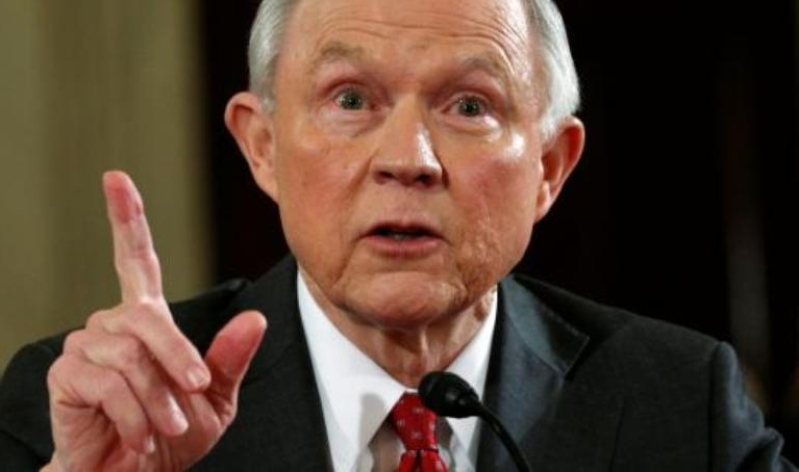
The new, 84th Attorney General Jeff Sessions is expected to champion religious freedom in the US Justice Department.
As a Republican senator from Alabama and devout Methodist, Sessions argues that the separation of church and state is unconstitutional, and that the First Amendment's bar on an establishment of religion has been interpreted too strictly, while its right to free exercise of religion has been diminished, reports Fox News. He was approved 52 to 47 after a prolonged fight in the Senate.
Asked at his confirmation hearing whether a "secular person" has "just as good a claim to understanding the truth as a person who is religious," Sessions replied, "Well. I'm not sure."
The Justice Department's civil rights division traditionally is subject to the most radical shift in agendas with each change in presidential administration.
At the Justice Department, Sessions will be responsible for leading the legal defense of President Trump's immigration restrictions, for halting and investigating terrorist attacks, and for investigating hate crimes and abuses by local and state law enforcement, reports Los Angeles Times.
"Religious conservatives have sort of been the forgotten people," said Hiram Sasser, deputy chief counsel for First Liberty Institute, a law firm that specializes in issues of religious liberty. "Now, we have a refreshing sort of reboot to be able to have at least a voice, and to be able to once again have a seat at the table."
On his first full day on the job, Sessions stated the department is no longer asking judges to limit an injunction restricting the federal government from telling schools that students should be able to use bathrooms and locker rooms corresponding to their gender identity. Transgender rights were a focus of the department under former Attorney General Loretta Lynch.
Justice Department representatives declined to comment on Sessions' plans for enforcement of religious freedom. He faced intense criticism of his record on civil rights with regard to race.
A renewed focus on religious causes would be "especially troubling in light of the fact that increasing numbers of Americans are not religious," said Marci Hamilton, a Yeshiva University legal expert on religious liberty. "This landscape is radically different."
Trump still has not signed an executive order to boost protections for those with religious objections to gay marriage and create a working group within the Justice Department to protect "the religious freedom of persons and religious organizations."
Some speculate Justice Department workers could insert themselves into federal lawsuits on behalf of faith-based groups. They could aggressively enforce the provision of the Civil Rights Act that bans workplace bias based on religion, and also a law designed to let churches and other religious institutions skirt zoning restrictions.
Sessions was first elected to the Senate from Alabama in 1996, and served two decades on the Judiciary Committee, which reviews federal judges and conducts oversight of the Justice Department.
Democrats worry that Sessions, such an ardent Trump surrogate during the presidential campaign, will oversee the reported federal investigation into potential ties between the Trump campaign and the Russian government.
"It is very difficult to reconcile for me the independence and objectivity necessary for the position of attorney general with the partisanship this nominee has demonstrated," Feinstein said to explain why she voted against Sessions' nomination in the Judiciary Committee.
Sessions said he won't be afraid to tell Trump he is wrong or that a planned action is unconstitutional. An attorney general has "to be able to say no, both for the country, for the legal system and for the president, to avoid situations that are not acceptable. I understand that duty," Sessions testified.






